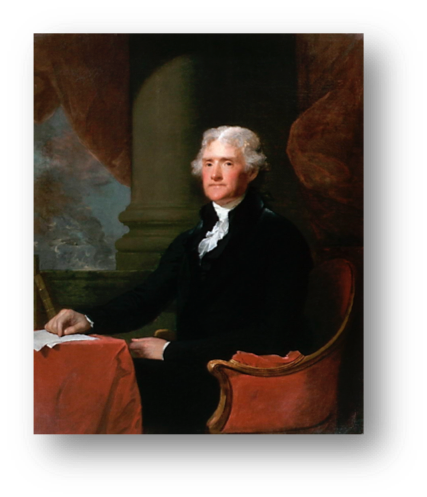Blog
Quick 6-Hour Course Options for Busy Teachers
- December 18, 2023
- Posted by: The Teachers Academy
- Category: All Blog Postings Classroom Activities Educator Resources / News Online Courses

It’s a busy time of year! Teachers are wrapping up for a long winter break and the wrapping continues for many of us at home. The holiday season can be overwhelming so keeping track of license requirements may not be a priority right now. If it is a priority for you we have some quick 6-hour courses to help earn those professional development hours quickly. These courses have been written and designed by teachers for teachers. Many projects can be customized to fit the needs of your current classroom and the courses are full of high-quality educational resources to keep in your toolbox.
Check out a few excerpts from our 6-hour course options:
Course: Supporting the Inclusive Classroom
As a special education teacher, I have witnessed the hesitation to accept students with disabilities for fear it will distract from teaching the other students. My response to those teachers is this: The most important lessons your students will learn, are not going to come from a textbook. Many of your students will have little or no memory of the facts they memorized for tests that only measure the recollection of facts. They will remember the kindness and empathy displayed by their teachers as well as the fun, effective and engaging learning activities prepared for them. The more you get to know your students with disabilities, the more you will see their abilities. The more your students are exposed to different types of learners, the less they will think they are so different. From this mindset, we can all develop a deeper sense of empathy, build tolerance and demonstrate acceptance.
Students with disabilities teach us about human kindness by simply being part of our everyday lives. They teach us to be helpful and patient when learning something new. They teach us that we all have weaknesses to overcome and strengths to be proud of. They teach us that accomplishing goals can be monumental tasks that take months to achieve or as simple as learning to hold a pencil. They teach us not to judge each other but to be happy and grateful for each other. Being inclusive is a mandated law but that should not be the reason for creating an inclusive learning environment. The reason we (teachers) create an inclusive learning environment is because we (you) are kind.

Course: Library of Congress
A Brief History of the Library of Congress
In 1800, the Library of Congress was created specifically for members of congress and was housed in a small part of the Capital building in Washington DC. After the first Library of Congress was burned down by British troops in 1814, the library was rebuilt and the contents were replaced by Thomas Jefferson’s personal collection. The government paid Jefferson almost $24,000 for over 6,000 books, which would serve as the foundation of the first national library. His diverse collection of books caused a bit of an uproar in Congress. In the end, the members agreed to accept Jefferson’s books (written in different languages) on Science, Literature and Philosophy, despite the fact that they were not typical reference materials for a government.

Here is a quick 5-minute video if you’d rather watch than read about the history of the LOC:
(I won’t tell.)
The Library of Congress is Your Library
The library expanded again with the revision to U.S. Copyright laws in 1870. These laws required copyright applicants to send the library 2 copies of their work. The overwhelming amount of materials including: books, music, photographs, maps and manuscripts prompted the construction of a separate building to maintain and catalogue the materials. In 1897, the library was opened to the public with this message: “The Library of Congress was established to further the progress of knowledge and creativity for the benefit of the American people”
Here is the long version if you like to read: History of the Library
For the past hundred years or so, the library has continued to expand and include new media sources such as voice and video recordings. It also began hosting literary events to help educate the public. The books are not allowed to leave the building, so the general public does not have to worry about those darn late fees.
Course: Universal Design for Learning
The Myth of Average
Universal Design: The design of products and environments to be usable by all people, to the greatest extent possible, without adaptation or specialized design. (The Center for Universal Design North Carolina State, 2008)
There are many examples of “universally designed” products that we use every day. Automatic sliding doors, soap dispensers and hand dryers are just a few of the products designed with the purpose of general accessibility. Some buildings are also designed to accommodate everyone. The Guggenheim is a great example of how art and architecture can come together to produce a structure that welcomes all people. There are no stairs in the Guggenheim, just a spiraling ramp that serves as the “walkway” through the whole museum. People of all different abilities can use universally designed products with ease. You may think these products and buildings were designed for the average person. That is not the case. In fact, they were designed for as many diverse people as possible. As educators we can use the same idea to guide our lesson design.
Average Students do not Exist
Think about it. Our education system is designed to teach the “average” student. The problem with this method is that the “average” student does not exist. Think about the variables that affect learning: Abilities, learning intelligences, memory, curiosity, environment, physicality, gender, socio-economic background, personality, age, interests, and more. Students are all on different schedules of their own learning processes and will progress at different rates. This is tough to swallow when you have time constraints for teaching your curriculum, but we have to start somewhere!

The Teacher’s Academy has been providing professional development opportunities for teachers since 2012. Find your state to discover professional development opportunities close to home. Contact us for more information or support. Enjoy your holiday!!
